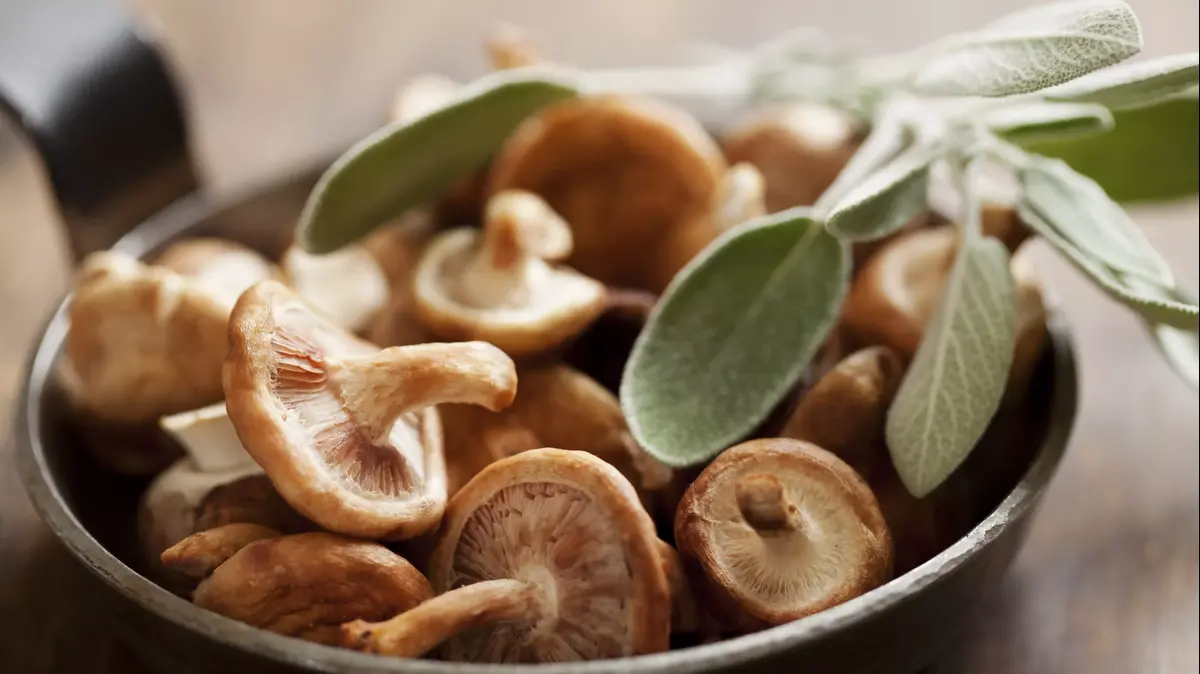They are called Button-Stalked Rübling, Witch's Egg or Wild Boar Dung Tender.
Very few will ever see such specimens, let alone recognize them.
A specialist is needed.
One like the Baumgartner Günter from Grafing.
Ebersberg / Grafing
- The edible, the inedible and the very poisonous. But mushrooms are much more than just something for the pan at home. "Mushrooms are like an ecological long-term memory," says Günter Baumgartner from Grafing. And they are an indicator that shows how the forest is doing.
It is still too early this year for a Pilz annual balance sheet.
But one thing is certain: the humid year 2021 cannot make up for the water shortage of the past two years.
Baumgartner outlines the result as follows: The time windows for mushroom growth are currently getting smaller and smaller.
“A roller coaster ride.” And something else: “In the past, the mushrooms grew in every farmhouse around Grafing.
Almost nothing grows there now.
The ground is too dry. ”This can also be observed in the Dobel.
He used to find lots of mushrooms there.
But then the subsoil is gravelly.
Bad for storing water.
In addition, the Dobel is "completely overcrowded, I don't feel like it".
+
It all depends on the right equipment: a mushroom knife with a brush to clean the mushrooms.
© Stefan Rossmann
For those who want to find what they are looking for, the Ebersberger Forest is currently and possibly more promising in the future.
And in places where nobody would expect it and obviously nobody is looking - except for Günter, perhaps.
When looking for mushrooms, you have to think outside the box
Sometimes you have to think outside the box when looking for mushrooms. As proof, the Grafinger shows a spot less than 50 meters from the Sauschütt beer garden. And indeed: There really are a lot of Reherl growing, completely undisturbed. Presumably the walkers all believe that whole hordes of mushroom hunters were there before them. But they weren't. And there is another trick: “I like to search in the eaves area,” says Baumgartner. In other words, where the rain can easily fall on the ground, such as along a forest path over which the trees are thinning.
Mushrooms do not forget so quickly. Not the acid rain and also not the heavy metals that got into the ground through the precipitation in the past decades from car exhaust fumes. And they haven't forgotten Chernobyl either. Chestnut boletus therefore still shine quite properly. The fault is the radioactive cesium from the damaged Belarusian nuclear reactor, which was also drifted into the Ebersberg district with rain clouds. “The mushroom is a climate indicator,” says Baumgartner. When the mushrooms disappear, the forest will eventually disappear too, at least the spruce forest.
Baumgartner does not associate a fundamental criticism of the many spruce trees in the Ebersberg Forest with this.
“It grows quickly and straight,” he says, so that's great timber.
This conifer species is therefore also justified in our country, but often in the wrong location because it is too dry.
Some mushrooms almost love the company of the spruce.
For example the boletus - but also the fly agaric.
They like to grow in the immediate vicinity.
Baumgartner has one piece of advice for mushroom hunters: “It is more important to know those who are not allowed to eat.
Otherwise you can take off your hat and go to the cemetery. "
+
Baumgartner holds a red-footed bolete in his hand.
The mushroom is edible, it has a sour taste.
© Stefan Rossmann
The most important tip is not to do any experiments.
And even a connoisseur like him knows his limits.
“I am not allowed to approve food”, for example during mushroom tours that the Grafinger organizes.
A mushroom expert makes the clearance for him.
“It comes from the Allgäu.
Even I'll learn something more. "
Climate change affects the mushrooms
Some types of mushrooms are becoming rarer, others are being added, such as the squid funnel. For Baumgartner, deriving an indication of climate change from this is “alarmism. Not every woodworm that comes to us in boxes from China is a sign of climate change. ”Nonetheless, he says clearly:“ There is climate change. And that will also affect the mushrooms. There are already species that I can no longer find at all. ”In a few years, he suspects, we would know more about it.
Baumgartner has a comparison. “I've been going to the mushroom for 50 years.” So one could see changes in the long term. He learned how to search from his father. And he taught it to his son Maxl (32) himself. “But he's more results-oriented than I am.” By the way, Baumgartner doesn't think much of mushroom books. “The authors copy from each other,” he has already stated. If someone writes something wrong, it will appear in other books as well. "It is impossible for one to know 2000 mushroom species", the Grafinger expert points out. But his basket is full again for today. March home. For cleaning mushrooms.
You can read more news from the Ebersberg region here. By the way: All developments and results for the upcoming federal election from your region as well as all other important stories from the Ebersberg region are now also available in our regular Ebersberg newsletter.





